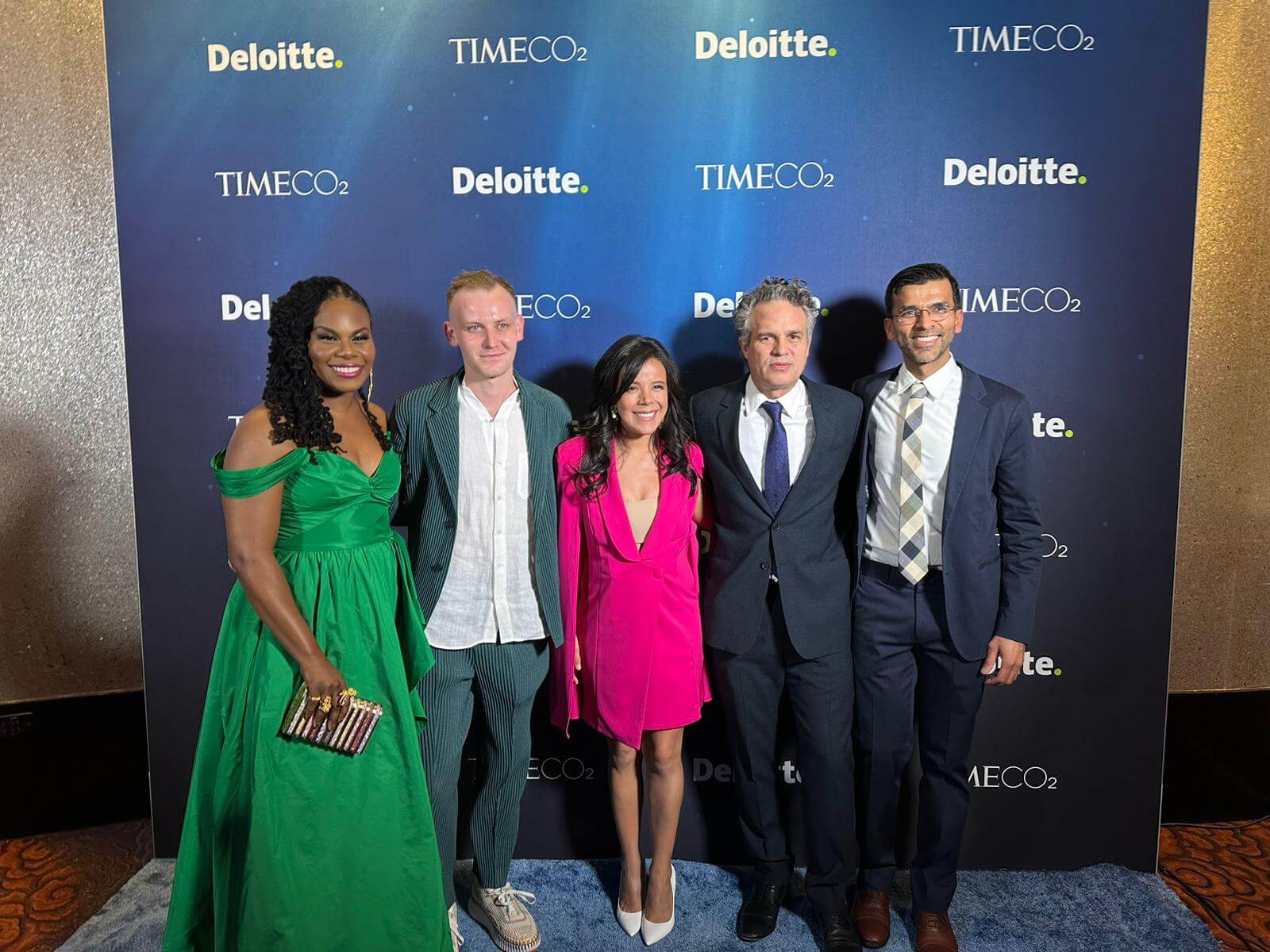Ben Larson is the Founder and CEO of Vertosa, a company based in the San Francisco Bay Area, specializing in extracting and infusion of cannabis oil into beverages. Ben has been an entrepreneur for almost ten years, during six of which he has led Vertosa. In this interview for Follow the Founder, we discuss a less-spoken side of what entrepreneurship entails: managing mental health.
One of the issues we at Follow the Founder want to address directly is the inevitable loneliness at the top that entrepreneurs experience. Whether you have a partner or not, you need to make a lot of decisions on your own. Not having a network around you when doing things for the very first time is a hurdle for all new and sometimes seasoned Founders. As someone who didn’t initially aspire to be an entrepreneur (read Ben’s full Founder story here), we ask Ben what his experience with this has been and what his support mechanisms are.
“There are two different aspects of it. One is the psychological aspect and one is the power of a network. Luckily, I got the latter. I got that taken care of pretty early because of where I started. I dove into building networks and entrepreneurial communities all around the world. So that part was easy for me. I saw the power in it. There’s a famous Jim Rhone quote: You’re the average of the five people that you spend the most time with. Keep that at the top of your mind. If you’re always trying to level up, you’re always having to curate that professional community around you.”
Finding a community that matches your current goals and intentions is crucial for your personal and professional growth. But if your aspirations change, or you no longer feel connected and aligned with the group, it probably means it is time to look for another support system, something that matches your current energy and vision. Or you might feel your presence and efforts dwindle and along with them, your inspiration.
“Over time, I acknowledge I became less and less present in the social community I’ve had since college because I had to apply my time and energy to my professional career. It doesn’t mean I love that group any less, it just means I need focus and to leverage my free time.”
Like Ben, many successful entrepreneurs gravitate towards social groups within their industry or with other Founders. Your social life tends to meld into your professional life, and that is OK. You want to find joy in what you do and surrounding yourself with more inspired people will only add to that.
Moving to the second part of the discussion, Ben talks about his mental health and how he finds support in times of difficulty outside of professional communities. Mental health is a prevalent issue among entrepreneurs. Research shows that entrepreneurship impacts 72% of Founders’ mental health while 37% suffer from anxiety [1]. Ben is no stranger to any of these issues.
“There are many ups and downs to running your own company. I’ve been on the verge of bankruptcy a number of times. I’ve wired money into our business accounts to pay payroll with the confidence that I was going to be able to pay myself back. That’s all fine and dandy when you’re single and willing to live under a desk, but I’ve got two young kids and a wife who would not be so comfortable in that situation.
“There is something very isolating about not only being an entrepreneur but especially about mental health amongst male entrepreneurs. It’s a huge concern that doesn’t get talked about a lot. This in itself makes it incredibly isolating. So bottle things up.”
Even in this day and age, when mental health is a big topic and no longer a taboo, a large proportion of people refuse to get help. Surveys reveal that only 23% of entrepreneurs who suffer from mental health difficulties have sought help [1]. The issue is especially pronounced among men. Even though this belief is based on now outdated worldviews of having to show strength and additional resilience as a man, 53% of male entrepreneurs admit they do feel stigma around discussing their mental health or admitting they need support [1].
“So all this to say I have found a group of male entrepreneurs. At first, I was apprehensive about joining this group. I don’t want to say it is not socially acceptable, but this is the only word that is coming to my mind, for a bunch of fortunate men to gather in secret places and mastermind how to help each other build more wealth. We do a little bit of that, but the reason why the group is so important is that you have people with parallel shared experiences, who are all facing the same challenges. Sometimes it is very heavy, it gets really hot the closer you get to the sun. The lawsuits become bigger, they start attacking your personal life.”
What Ben and his fellow entrepreneurs have achieved in their group is remarkable. According to the same study we quoted above, 81% of Founders do not share their worries, or challenges, or talk openly about their struggles and mental health. This is a big part of what Follow The Founder aims to be. We aim to form and normalize these groups of entrepreneurs. To make them more accessible to all Founders no matter their gender or their socioeconomic background.
“This group has been amazing. It has helped me unpack some of the complexities of being in this position. We meet fairly frequently throughout the year. We hold Zoom calls where there is no small talk and no posturing, no one’s pumping themselves up. And in fact, it’s not even a part of the ethos to talk about how well things are going. We just dive right into the thick of it. There are a lot of tears, a lot of hugging. It is endearing to see otherwise powerful, very fortunate people be completely unguarded, to only focus on helping each other feel more centered, to be better partners for our spouses, and to be better fathers for our children.”
Finding this support and tribe, people you feel very comfortable with is invaluable in many aspects. It could even be more beneficial to you the further away from your business they are because it reduces the risk and anxiety of overexposing yourself to someone within your industry. You can then be more open. Another aspect is the diversity of perspectives. Being surrounded by people only from your area of expertise can limit you and give you a more narrow or limited worldview. Ben has experienced a great deal of value in this diversity too.
“The most important thing for us is to just find our tribe. It doesn’t have to be one tribe. I have multiple tribes. I have my brothers, so to speak, in the Frontier Club. I’m also a member of Vistage which is a very professionally organized CEO Mastermind group. Every month, I meet with the same 18 people, CEOs of all different types of companies. We have lawyers, tech, construction. I’m the only cannabis person.
“It’s so immensely valuable because we all face the same challenges. A lot of it is people issues such as firing, growing, and scaling. Meeting with this group has been the biggest level up for me because any given month they will help me process. If I bring the same problem twice, they will hold me accountable.
“I can predict what questions or answers might come up in these meetings, so I’m processing as I go through the month knowing that. If I take care of all these micro issues now, they won’t turn into something blown out of proportion a month or two later. I often refer to this work as my group therapy. I’m a big proponent of therapy, and this is just another version of it.”
Conversations and discussions open up new perspectives for you, shine a light on new possibilities, allowing you to expand your knowledge and horizons, but also your vision, be it for your company or your own personal growth.
“I always say that I learn more by not asking people to help solve my problems. I learn more by hearing other people’s processes or problems and helping them. A lot of entrepreneurs share mental characteristics or tendencies. In my case ADHD. I’m reading this book called ‘The Molecule of More’. It’s all about dopamine and how it controls the brain. It relates it to ADHD, why we are certain ways, and why we can remember insane details about our business, but forget in a second personal details about someone close to you. It came up in a conversation in the group, and we just started trading notes and getting advice on how to manage it all.”
A peer group you can relate to and learn from is integral to your health and success. If you want to meet more people with similar aspirations, values, and ambitions, join our growing community at Follow the Founder. You can also find us on Instagram or LinkedIn.
References:
[1] Startup Founders Report Entrepreneurship Is Taking A Toll On Their Mental Health,








